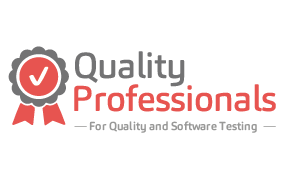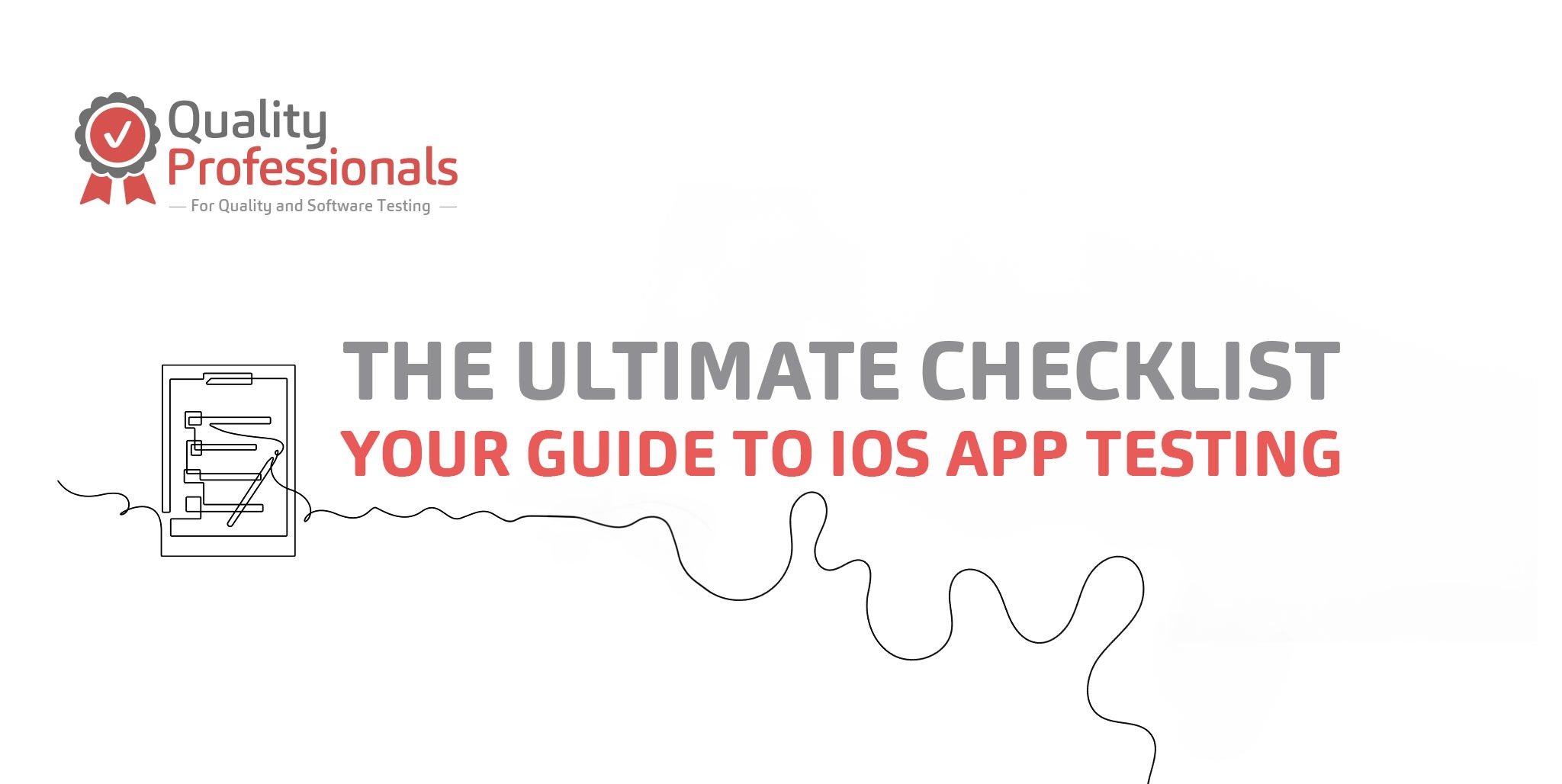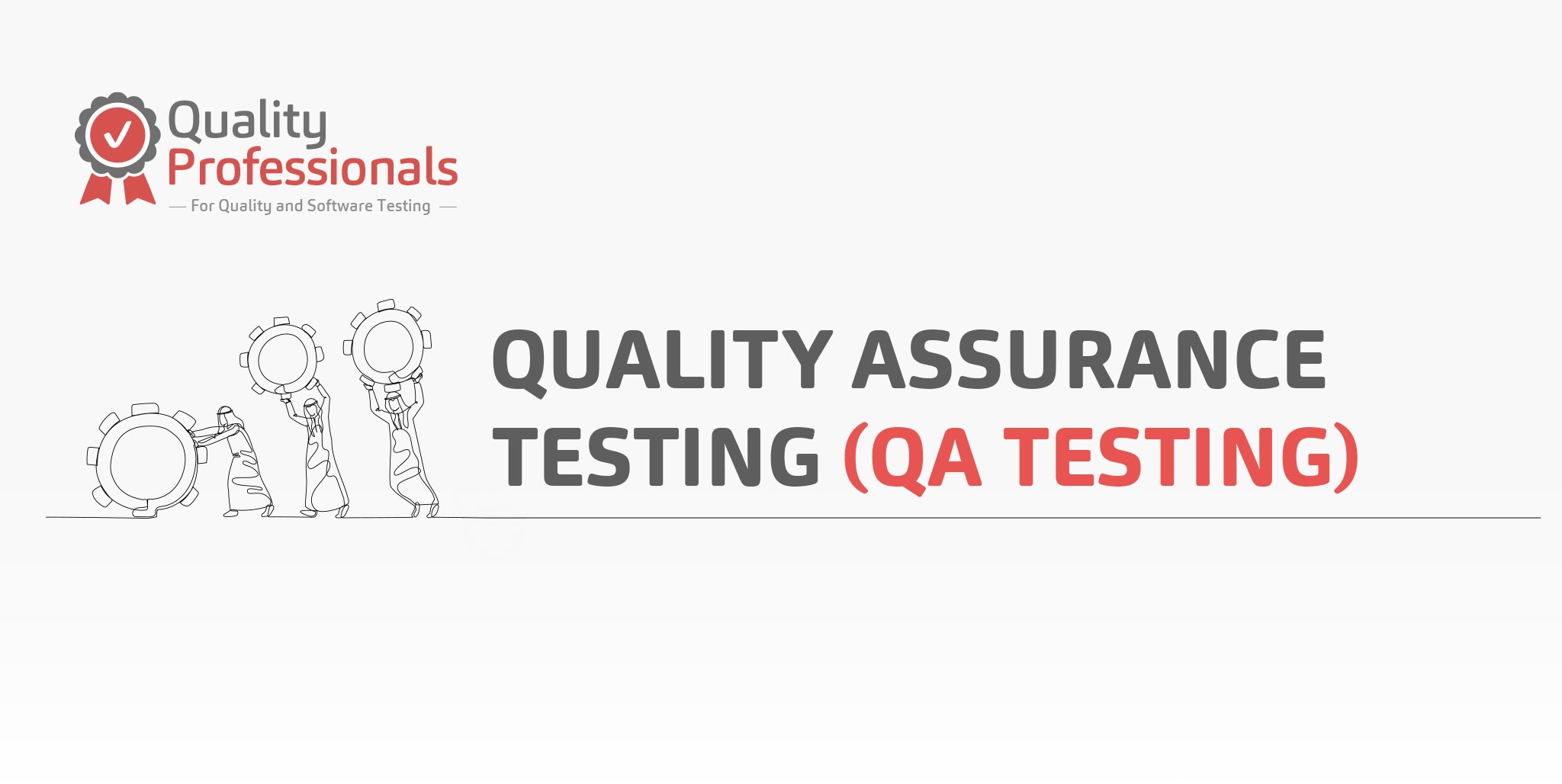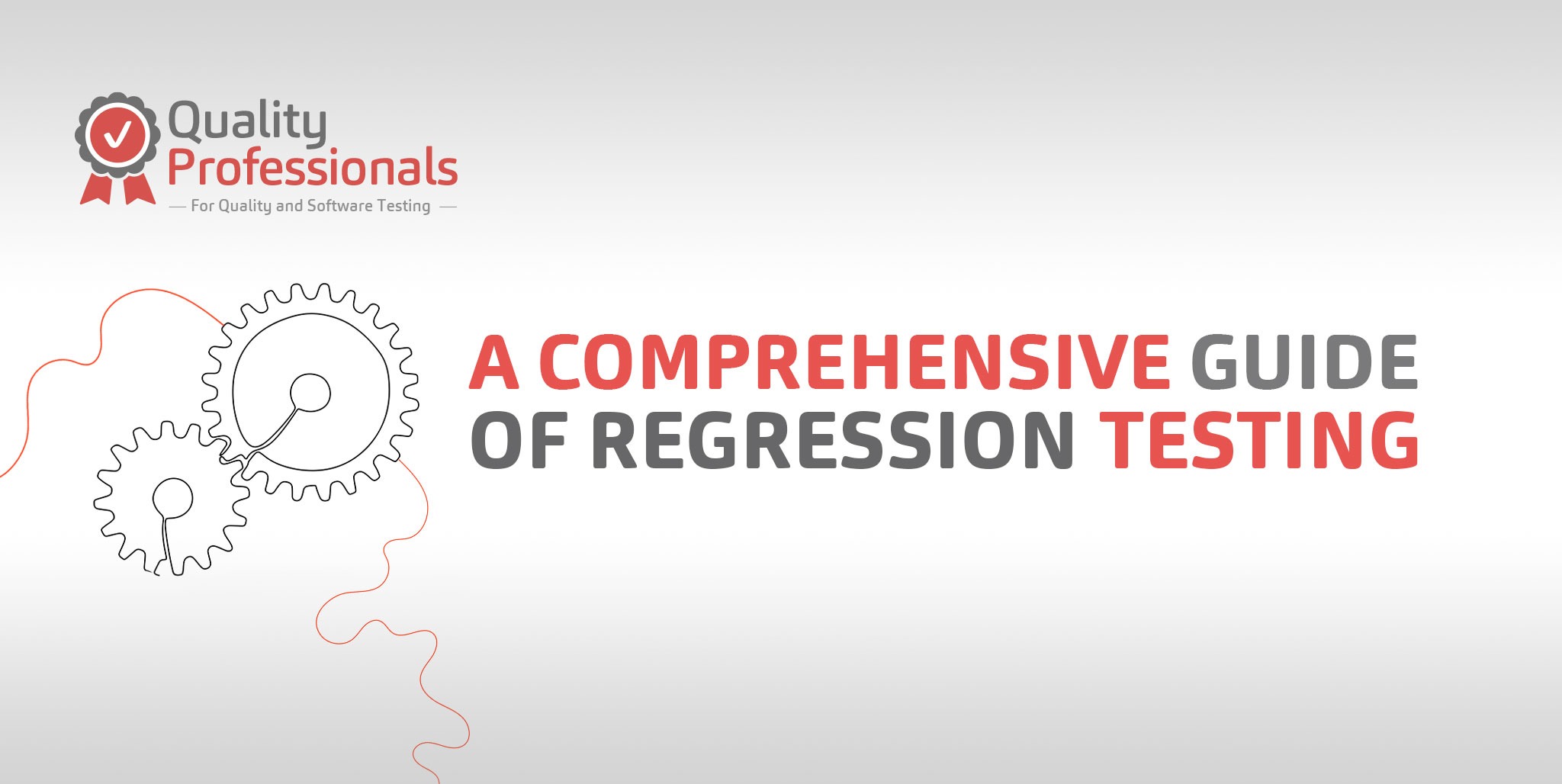iOS App Testing Checklist: A Crucial Step for Flawless Functionality and Exceptional User Experience In today's dynamic mobile app landscape, ensuring the quality and flawless functionality of your iOS app is paramount to its success. Rigorous testing is an essential step in the app development process, enabling you to identify and rectify any bugs, performance issues, or usability problems before releasing your app to the public. A comprehensive iOS app testing checklist serves as a roadmap to guide you through the evaluation of your app's various aspects, ensuring it meets the highest standards and delivers an exceptional user experience. Ensuring a Seamless User Experience through iOS app testing checklist In the competitive world of mobile apps, delivering an exceptional user experience is paramount to success. A seamless user experience encompasses everything from the app's design and functionality to its performance and reliability. To achieve this, rigorous iOS app testing checklist is essential. What is iOS app testing checklist? iOS app testing checklist is the process of evaluating an iOS app to identify and rectify any bugs, performance issues, or usability problems before releasing it to the public. This testing process helps ensure that the app meets the expectations of users and adheres to Apple's App Store Review Guidelines. Why is iOS app testing checklist Important? Thorough iOS app testing offers a multitude of benefits: Improved User Experience: By identifying and addressing usability issues, testing helps create an app that is easy to use and navigate, enhancing the overall user experience. Enhanced App Quality: Testing helps uncover and eliminate bugs, ensuring that the app functions as intended and delivers a high level of quality. Reduced Risk of Negative Reviews: By releasing a bug-free and user-friendly app, you can minimize the likelihood of receiving negative reviews, protecting your app's reputation. Increased App Store Ranking: A well-received app with positive reviews is more likely to rank higher in the App Store, increasing visibility and downloads. iOS App Testing Checklist A comprehensive iOS app testing checklist should encompass various aspects of the app, including: Functionality Testing: Verify that all features work as intended, including user interactions, data handling, and core functionalities. Performance Testing: Evaluate the app's performance under various conditions, such as load, network speed, and device type, to ensure optimal performance. Usability Testing: Assess the app's UI/UX for intuitiveness, ease of use, and consistency with Apple's Human Interface Guidelines. Security Testing: Conduct penetration testing to identify potential security vulnerabilities and ensure data protection. Compliance Testing: Verify that the app complies with Apple's App Store Review Guidelines, accessibility standards, and relevant privacy regulations. Device Compatibility Testing: Test the app across a wide range of iOS devices, including different screen sizes, orientations, and operating system versions. Beta Testing: Distribute the app to a select group of beta testers for real-world feedback and identify potential issues before public release. Continuous Testing: The Ongoing Quest for Quality iOS app testing checklist is not a one-time event it's an ongoing process that requires continuous evaluation as the app evolves and new features are added. Regular testing ensures that the app remains bug-free, performant, and user-friendly, maintaining a high standard of quality and a positive user experience. Partnering with Quality Professionals for iOS app testing checklist Excellence At Quality Professionals, we specialize in providing comprehensive iOS app testing checklist that help you deliver high-quality apps that meet the highest standards. Our team of experienced testers utilizes a rigorous testing methodology and employs a range of testing tools and techniques to ensure your app performs flawlessly across all iOS devices and operating system versions. We understand that every app is unique, and our testing approach is tailored to meet your specific needs and requirements. We work closely with you to understand your app's goals, target audience, and business objectives, ensuring that our testing efforts align with your overall strategy. Contact us today to discuss your iOS app testing checklist needs and experience the Quality Professionals difference. Let us help you elevate your iOS app testing to new heights of excellence and deliver exceptional user experiences that will propel your app to success. Conclusion At Quality Professionals, we are committed to providing comprehensive iOS app testing services that empower you to deliver high-quality, bug-free apps that captivate your target audience and achieve your business objectives. Our team of experienced iOS app testers employs a rigorous testing methodology and utilizes a range of cutting-edge testing tools and techniques to ensure that your app performs flawlessly across all iOS devices and operating system versions. We understand that every app is unique, and we tailor our testing approach to meet your specific needs and requirements. We work closely with you to understand your app's goals, target audience, and business objectives, ensuring that our testing efforts align with your overall strategy. Partner with Quality Professionals today and elevate your iOS app testing to new heights of excellence. Let us help you deliver exceptional iOS apps that will propel your app to success and establish your brand as a leader in the mobile app industry https://q-pros.com/online-test-request/...
Read MoreAuthor: q-pros
Delving into the Essence of Application Quality Testing Application Quality Testing (AQT) is often perceived as a mere technical exercise focused on identifying and resolving defects within the dynamic world of software development. However, this narrow view fails to capture the true essence of AQT, which extends far beyond bug hunting and encompasses a holistic approach to ensuring the overall quality and user experience of software applications. At its core, Application Quality Testing is a journey of discovery, a process of delving into the very fabric of software to uncover its strengths and weaknesses. It's about understanding the intricate interplay of functionality, usability, performance, and user experience, ensuring that these elements harmoniously blend to deliver an exceptional application. This shift from a reactive bug-fixing mindset to a proactive quality-driven approach represents a paradigm shift in the AQT landscape. It's about moving beyond simply identifying problems and instead focusing on enhancing the overall user experience. Unveiling the Multifaceted Dimensions of Application Quality Testing The Functional Backbone: Assuring Core Functionality The cornerstone of Application Quality Testing lies in ensuring the core functionalities of an application operate flawlessly. This rigorous process involves meticulously testing the application's features, ensuring they meet the specified requirements and perform as intended. Application quality testers meticulously scrutinize every aspect of the application, uncovering defects that could hinder its functionality and jeopardize the user experience. They employ a variety of testing techniques, including unit testing, integration testing, and system testing, to comprehensively evaluate the application's behavior under different scenarios. Performance optimization plays a crucial role in ensuring a seamless user experience. Application quality testers analyze the application's resource utilization, identify performance bottlenecks, and implement optimization strategies to enhance responsiveness and stability under load. The Usability Frontier: Crafting an Intuitive Interface While functionality is essential, it's only one piece of the Application Quality Testing puzzle. Usability, the ease with which users can interact with and navigate the application, is equally important. Application quality testers take on the role of user advocates, employing user-centered testing methodologies to understand user needs, preferences, and potential pain points. Through user-centered testing, testers observe real users interacting with the application, gathering insights into their thought processes, frustrations, and areas of confusion. These valuable insights inform the design and usability heuristics, guiding the development team towards an intuitive and user-friendly interface. The Performance Pinnacle: Achieving Peak Performance In today's fast-paced digital world, users demand applications that can handle heavy workloads and maintain stability under pressure. Application quality testers ensure that applications can meet these demands through rigorous load and stress testing. Load testing simulates real-world usage scenarios, gradually increasing the number of concurrent users to assess the application's scalability and identify performance bottlenecks. Stress testing pushes the application beyond its expected limits, simulating extreme usage conditions to uncover potential vulnerabilities and ensure the application can withstand unforeseen spikes in demand. Performance optimization techniques, such as caching, resource optimization, and code refactoring, are employed to enhance resource utilization and ensure the application can deliver a responsive and consistent user experience even under peak load conditions. Elevating Application Quality Testing to an Art form The Role of Exploratory Testing: Embracing the Unexpected While scripted testing provides a structured approach, exploratory testing brings a touch of creativity and spontaneity to the Application Quality Testing process. Application quality testers, armed with their experience and intuition, embark on an exploratory journey, freely navigating the application and uncovering hidden defects that might have gone undetected in scripted testing. Exploratory testing is unstructured yet purposeful, allowing testers to adapt their approach based on their observations and discoveries. This unstructured nature fosters lateral thinking, enabling testers to identify unexpected issues and potential usability problems that might have been overlooked in a more rigid testing environment. The Art of Automation: Simplifying and Empowering Automation has revolutionized Application Quality Testing, simplifying repetitive tasks and empowering testers to focus on more complex and value-added activities. Application quality testers leverage automated testing frameworks to streamline the execution of test cases, enabling continuous testing throughout the development lifecycle. Automated testing frameworks provide the infrastructure for creating and executing automated test scripts, freeing up testers from repetitive manual testing tasks. This allows them to dedicate their time to more creative and challenging activities, such as exploring new features, investigating complex scenarios, and analyzing test results to identify trends and patterns. Continuous testing integrates Application Quality Testing into the development pipeline, ensuring that quality is embedded into every stage of the software lifecycle. By automating test execution and providing real-time feedback, continuous testing enables early defect detection, reducing the time and cost of fixing bugs later in the development process. The Synergy of Manual and Automation: A Collaborative Approach While automation has transformed application quality testing (AQT), manual testing remains an indispensable component of the quality assurance process. Human testers possess the ability to think critically, empathize with users, and adapt to unexpected situations, making them uniquely suited for tasks that require creativity, intuition, and adaptability. Manual testing is particularly valuable in areas where automation is challenging or impractical, such as user interface (UI) testing, exploratory testing, and testing of complex interactions and workflows. The human element allows testers to identify subtle usability issues, uncover edge cases, and provide valuable insights into the overall user experience. A synergistic approach that combines manual and automated testing leverages the strengths of both approaches to achieve comprehensive quality assurance. Manual testing provides the human touch, ensuring that the application is not only bug-free but also user-friendly and delightful to use. Automation, on the other hand, handles repetitive tasks efficiently, enabling continuous testing and rapid feedback throughout the development lifecycle. Unveiling the Impact of Application Quality Testing The Impact on User Experience: Delivering Delight High-quality application quality testing (AQT) extends beyond the application itself, influencing the overall user experience. By delivering an intuitive, responsive, and bug-free application, AQT fosters user trust, loyalty, and advocacy. This positive user experience translates into business growth and enhanced customer satisfaction. When users encounter an application that is easy to use, performs consistently, and is free of frustrating bugs, they are more likely to form a positive association with the brand and the application itself. This positive first impression can lead to increased user engagement, repeat usage, and ultimately, customer loyalty. Application Quality Testing plays a crucial role in ensuring that applications meet user expectations and deliver a delightful experience. By identifying and resolving usability issues, optimizing performance, and ensuring overall stability, AQT helps to create an application that users find enjoyable, efficient, and reliable. The Impact on Development Process: Embracing Quality Application Quality Testing is not an afterthought but an integral part of the development process. By identifying and resolving defects early in the development cycle, AQT saves time, resources, and potential rework costs. This proactive approach promotes continuous improvement, fostering a culture of quality throughout the development process. When Application Quality Testing is integrated into the development pipeline, defects are detected and addressed early on, before they become deeply embedded in the codebase. This early defect detection reduces the time and cost associated with fixing bugs later in the development cycle, when changes are more complex and expensive to implement. Application Quality Testing also promotes a culture of quality throughout the development team, encouraging developers to write clean, maintainable code and adopt a quality-centric mindset. This culture of quality leads to the development of more reliable, scalable, and maintainable applications. The Impact on Innovation: Unleashing Creativity A robust Application Quality Testing empowers innovation by providing a stable platform for experimentation. AQT testers collaborate with developers to explore new features, test innovative concepts, and push the boundaries of application design. This collaborative approach fosters creativity and enables breakthroughs that drive business success. With a comprehensive Application Quality Testing strategy in place, developers can confidently experiment with new ideas and features, knowing that the application's core functionality and stability will remain intact. This freedom to experiment encourages innovation, leading to the development of groundbreaking features and functionalities that differentiate the application in the market. Application Quality Testing also plays a crucial role in identifying and mitigating potential risks associated with new features and innovations. By thoroughly testing new concepts and functionalities, AQT helps to ensure that the application remains stable, secure, and performant, even as it evolves and adapts to changing user needs and market demands. Conclusion In the ever-evolving landscape of software development, Application Quality Testing (AQT) has transcended its traditional role of mere bug detection and emerged as an indispensable catalyst for crafting exceptional user experiences. By embracing the soul of AQT, organizations can unlock a world of possibilities, where applications not only function flawlessly but also resonate with users on a deeper level. Quality Professionals, true to its name, stands at the forefront of this transformative journey, empowering organizations to harness the power of AQT and deliver software that not only meets expectations but exceeds them. Our team of seasoned AQT experts possesses an unwavering commitment to quality, meticulously scrutinizing every aspect of the application to ensure it adheres to the highest standards of functionality, usability, performance, and user experience. Request a Service ...
Read MoreAI and Software Testing converge in the realm of software testing, creating a compelling synergy with quality assurance. This article takes you on a journey through the dynamic interplay between AI and Software Testing, offering valuable insights into the continually evolving landscape of quality assurance. Welcome to the future, where technology and quality assurance seamlessly unite. AI and Software Testing at a Glance Understanding Quality Professionals Discover the core principles of AI-driven software testing, highlighting the innovative approaches that set Quality Professionals apart. Quality Professionals is committed to pushing the boundaries of software testing, integrating cutting-edge AI technologies to enhance the quality and efficiency of the testing process. As we navigate the intricate relationship between AI and Software Testing, let's explore how Quality Professionals is shaping the industry landscape. Embracing Quality Assurance with AI At Quality Professionals, we believe in embracing quality assurance with open arms, leveraging the power of AI to augment our testing methodologies. The seamless integration of AI technologies allows us to optimize testing processes, ensuring the delivery of high-quality software solutions to our clients. The Role of LSI Keywords in AI-Infused Testing Leveraging LSI in Software Testing Demystifying the role of Latent Semantic Indexing (LSI) keywords in optimizing software testing methodologies is crucial to understanding the depth of our approach at Quality Professionals. LSI helps us create a nuanced and comprehensive testing strategy, ensuring that every aspect of software functionality is thoroughly examined. LSI Keywords in Action Witness how Quality Professionals strategically integrates LSI keywords without overt mention, ensuring a seamless and natural flow within the content. This meticulous approach not only complies with SEO guidelines but also enhances the readability and coherence of our testing documentation. Advantages of AI in Software Testing Precision and Efficiency Unleashed One of the key advantages of incorporating AI into software testing is the unparalleled precision and efficiency it brings to the process. Quality Professionals harnesses the power of AI to execute repetitive and time-consuming testing tasks with unmatched accuracy. Cost-Effective Quality Assurance Quality assurance doesn't have to come at a hefty price. At Quality Professionals, we pride ourselves on providing cost-effective solutions through AI-driven testing. By automating certain aspects of the testing process, we optimize resources and reduce costs without compromising on quality. Navigating Challenges in AI-Driven Testing Overcoming Obstacles with Quality Professionals While AI-driven testing offers immense benefits, it's not without its challenges. Quality Professionals recognizes and addresses these obstacles proactively. From ensuring data security to mitigating algorithm bias, our team is dedicated to overcoming challenges and delivering reliable testing outcomes. Future Trends in AI and Software Testing The future of AI and software testing is an exciting frontier that Quality Professionals is actively exploring. Our experts predict trends that include further automation, enhanced machine learning capabilities, and increased integration of AI into the development lifecycle. By staying ahead of the curve, Quality Professionals continues to shape the future of software testing. AI and Software Testing with Quality Professionals: FAQs How does AI enhance software testing? AI enhances software testing by automating repetitive tasks, improving precision, and identifying vulnerabilities. Quality Professionals integrates AI seamlessly into testing processes for optimal results. Can AI completely replace manual testing? While AI automates many testing tasks, manual testing remains crucial for certain scenarios. Quality Professionals adopts a balanced approach, combining AI and manual testing for comprehensive quality assurance. Is AI-driven testing cost-effective? Yes, AI-driven testing can significantly reduce costs by increasing efficiency and accuracy. Quality Professionals specializes in cost-effective AI solutions for quality assurance. What challenges does AI pose in software testing? AI may pose challenges such as data security and algorithm bias. Quality Professionals addresses these challenges proactively, ensuring secure and unbiased AI-driven testing. How is Quality Professionals shaping the future of software testing? Quality Professionals pioneers future trends by staying updated on technological advancements. Through continuous innovation, Quality Professionals leads the way in shaping the future of software testing. How can businesses benefit from AI-infused testing? Businesses benefit from AI-infused testing through improved product quality, faster release cycles, and cost savings. Quality Professionals tailors AI solutions to meet the specific needs of businesses, ensuring optimal outcomes. Conclusion In conclusion, the marriage of AI and software testing heralds a new era of efficiency and precision in quality assurance. Quality Professionals stands as a beacon, illuminating the path to a future where technology and quality coalesce seamlessly. Request a Service...
Read MoreIn the rapidly evolving landscape of software development, ensuring the quality of your product is paramount. As businesses strive to deliver seamless and bug-free software, the demand for QA (Quality Assurance) consulting companies has surged. This article explores the crucial role these companies play in optimizing software quality and highlights the key aspects of QA consulting. Read on to discover how partnering with QA experts, such as Quality Professionals, can elevate your software development process. The Significance of QA Consulting Companies: Expertise and Specialization: QA consulting companies bring a wealth of expertise and specialization to the table. With a focus on quality throughout the development life cycle, these companies employ seasoned professionals who are well-versed in the latest industry standards and best practices. Quality Professionals, with its dedicated team of QA specialists, stands out in this regard. Comprehensive Testing Strategies: QA consulting companies employ comprehensive testing strategies to identify and rectify potential issues at every stage of development. This includes functional testing, performance testing, security testing, and more. By implementing thorough testing protocols, these companies ensure that the final product meets the highest standards. Cost-Effective Solutions: Outsourcing QA services to a consulting company like Quality Professionals can be a cost-effective solution. These companies often have the necessary tools, resources, and infrastructure in place, saving businesses from the financial burden of establishing an in-house QA team. Adaptation to Latest Technologies: The tech landscape is constantly evolving, and so are the tools and technologies used in software development. QA consulting companies stay abreast of the latest advancements, ensuring that your software is tested using state-of-the-art tools and methodologies. Risk Mitigation: QA consulting companies play a crucial role in risk mitigation. Through thorough testing, they identify and address potential issues before they escalate, minimizing the risk of post-release defects. This proactive approach contributes to a more stable and reliable software product. In the fast-paced world of software development, QA consulting companies have emerged as indispensable partners in the pursuit of delivering flawless and high-quality applications. Let's delve deeper into the core functions of these companies, shedding light on the specialized services they offer to enhance the software development life cycle. Tailored Testing Strategies: QA consulting companies understand that each software project is unique, and one-size-fits-all testing approaches fall short. These firms excel in crafting tailored testing strategies that align with the specific needs and intricacies of each project. Whether it's a web application, mobile app, or enterprise software, QA consultants, including those at Quality Professionals, meticulously design testing plans that address the nuances of the software under examination. Test Automation Excellence: In an era where efficiency and speed are paramount, QA consulting companies leverage test automation to streamline the testing process. Automation not only accelerates testing cycles but also enhances the accuracy of test results. Quality Professionals, as a leading QA consulting firm, boasts expertise in implementing robust automation frameworks, ensuring optimal test coverage while minimizing manual intervention. Continuous Integration and Continuous Testing: QA consulting companies embrace the principles of continuous integration and continuous testing to promote a seamless and iterative development process. By integrating testing into the development pipeline, these firms facilitate early bug detection, enabling faster bug resolution and ensuring that software remains consistently reliable. Quality Professionals understands the importance of continuous testing in the agile development landscape and offers tailored solutions to integrate testing seamlessly into the development life cycle. Security and Performance Testing: Given the escalating cybersecurity challenges and the rising need for high-performance applications, QA consulting companies prioritize security and performance testing. These firms employ cutting-edge tools and methodologies to identify vulnerabilities, ensuring that software is not only functional but also robust and secure. Quality Professionals specializes in comprehensive security and performance testing, providing clients with the confidence that their applications can withstand real-world challenges. Collaboration and Communication: Effective communication and collaboration are at the heart of successful QA consulting. QA consultants work closely with development teams, project managers, and stakeholders to gain a deep understanding of project requirements. This collaborative approach ensures that QA efforts are aligned with business goals and that potential issues are identified and addressed promptly. Training and Skill Development: To stay at the forefront of industry trends and technologies, QA consulting companies invest in the continuous training and skill development of their teams. Quality Professionals, for instance, fosters a culture of learning and development, ensuring that its QA specialists are equipped with the latest tools and techniques to deliver unparalleled quality assurance services. Conclusion: In conclusion, QA consulting companies play a pivotal role in elevating software quality by leveraging their expertise, employing comprehensive testing strategies, and staying abreast of the latest technologies. Quality Professionals, with its commitment to excellence and cost-effective solutions, stands as a reliable partner for businesses seeking to optimize their software development process. Embrace the power of QA consulting to ensure your software not only meets but exceeds user expectations. FAQs about QA Consulting and Quality Professionals: Q1: Why is QA consulting important for software development? A1: QA consulting ensures that software meets the highest quality standards by employing comprehensive testing strategies, reducing the risk of defects, and optimizing the development process. Q2: How does Quality Professionals stand out among QA consulting companies? A2: Quality Professionals distinguishes itself through its team of seasoned QA specialists, commitment to staying updated on the latest technologies, and providing cost-effective solutions for businesses of all sizes. Q3: Can QA consulting companies adapt to the specific needs of my project? A3: Yes, reputable QA consulting companies, including Quality Professionals, tailor their services to meet the unique requirements of each project, offering flexibility and scalability. Q4: Is outsourcing QA services cost-effective? A4: Outsourcing QA services to companies like Quality Professionals can be cost-effective, as it eliminates the need for businesses to invest in infrastructure, tools, and a dedicated in-house QA team. Request a Service ...
Read MoreIn today's competitive marketplace, ensuring the quality of products, services, and processes is crucial for businesses to thrive. Quality assurance (QA) plays a pivotal role in achieving this goal by identifying and eliminating defects before they reach customers. One of the fundamental aspects of QA is testing, which involves evaluating a system or component against defined requirements and expectations. Test Basic: The Foundation of Quality Assurance Test basic is the cornerstone of effective quality assurance (QA). It encompasses a set of fundamental principles and practices that guide the process of testing software, products, or services to ensure they meet the desired quality standards. A strong foundation in test basic is essential for any QA professional or individual involved in testing activities. The Importance of Test Basic Test basic plays a crucial role in achieving several critical objectives: Defect Prevention: Early defect detection is paramount in preventing costly rework and potential product failures. Test basic promotes a proactive approach to identify and eliminate defects early in the development cycle, minimizing their impact on the project and ensuring product quality. Process Efficiency: Well-defined test basic practices streamline the testing process, reducing redundancies and minimizing the time spent on defect resolution. This efficiency translates into improved productivity and cost savings. Risk Mitigation: Effective testing mitigates risks associated with software defects and product failures. By identifying and addressing potential issues early on, businesses can protect their reputation, maintain customer satisfaction, and avoid costly liabilities. Quality Assurance: Test basic serves as the foundation for ensuring that products and services meet the desired quality standards. It provides a structured approach to evaluate and validate software functionality, performance, security, and usability. Key Elements of Test Basic Test Planning: Test planning involves defining the scope of testing, identifying test objectives, and establishing a testing schedule. It ensures that testing efforts are aligned with overall project goals and resource allocation. Test Design: Test design involves creating test cases, which are step-by-step procedures for evaluating specific functionalities or requirements. Test cases should be comprehensive, unambiguous, and repeatable to ensure thorough testing. Test Execution: Test execution involves running test cases and recording the results. It requires careful attention to detail, adherence to test procedures, and the ability to identify and document defects. Test Reporting: Test reporting involves summarizing test results, highlighting identified defects, and providing recommendations for corrective actions. It serves as a communication tool to inform stakeholders about the quality status of the system or component under test. Benefits of Test Basic Reduced Defects: Effective testing helps identify and eliminate defects early in the development cycle, preventing them from reaching customers and causing costly rework or reputational damage. Improved Quality: Proper testing ensures that products and services meet customer expectations and industry standards, enhancing overall quality and user satisfaction. Increased Efficiency: Test basic promotes efficient testing practices, reducing redundant testing efforts and minimizing the time spent on defect resolution. Enhanced Productivity: By preventing defects from reaching production, testing contributes to improved productivity and reduced downtime. Reduced Costs: Early defect detection through testing can significantly lower the cost of fixing defects compared to addressing them later in the development cycle. Test Basic in Practice Test basic is not a rigid set of rules but rather a collection of guiding principles that can be adapted to specific testing scenarios. The application of test basic varies depending on the type of testing, the complexity of the system under test, and the available resources. Quality Professionals: Your Trusted Partner in Quality Assurance At Quality Professionals, we understand the importance of test basic and its impact on achieving quality outcomes. Our experienced team of QA professionals provides a comprehensive range of testing services, from test planning and design to test execution and reporting. We utilize industry-standard best practices and tools to ensure that your products and services meet the highest quality standards. Partner with Quality Professionals today to experience the benefits of test basic and elevate your organization's quality assurance practices. Request a Service ...
Read More